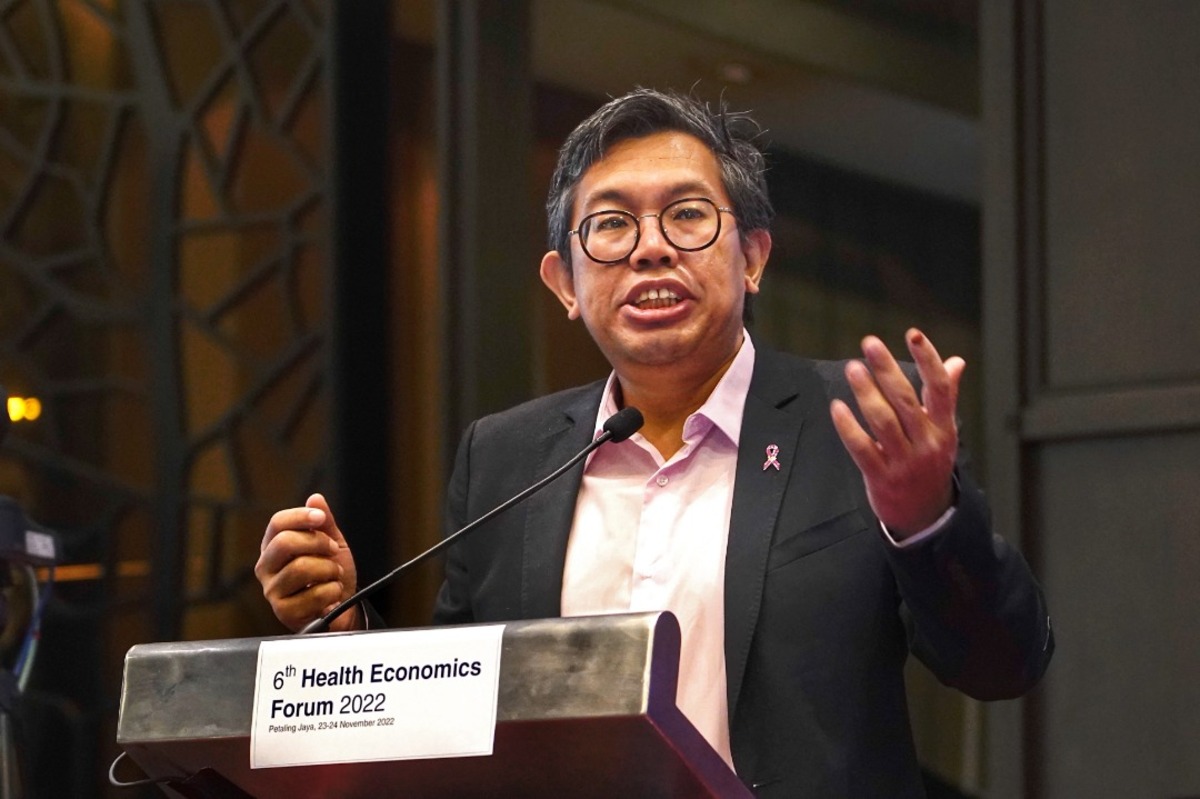KUALA LUMPUR, Nov 26 – The Galen Centre for Health and Social Policy has proposed one minister to manage both the ministries of health and women, family and community development.
Galen Centre chief executive Azrul Mohd Khalib pointed out that currently, no ministry is specifically tasked with aged care, amid an aged care crisis that Malaysia is ill prepared to deal with.
“Nobody wants to take care of aged care. You don’t know who this issue belongs to — the Ministry of Health (MOH) pushes it to the Ministry of Women, Family and Community Development Ministry (KPWKM) and that ministry pushes it back to MOH.
“So you find the neglect is symptomatic of that,” Azrul told BFM presenter Tee Shiao Eek yesterday on the radio station’s Health & Living: Doctor in the House segment.
He said MOH and KPWKM could retain the names of the ministries, but the new minister should be in charge of both portfolios.
“If you look at other countries, health is not just a ministry by itself, it’s also co-existing with the other aspects. This is going back to the social determinants of health because the continuum of care includes the environment, not just the delivery of clinical services, doing procedures, curing disease, and so forth. It’s also about the surroundings.
“A good example of that is obviously diseases like dengue and sexually transmitted diseases, reproductive health, and so forth. Perhaps what could happen in this administration, seeing how the prime minister has promised to reduce the size of the Cabinet, there could be a minister in charge of two ministries – one minister to be in charge of both the Ministry of Health and the Ministry of Women, Family and Community Development.
“So that when we look at care, it’s a continuum of care, not just one aspect, which is health care.”
Prime Minister Anwar Ibrahim told a press conference yesterday that discussions are being held among component parties of the Pakatan Harapan (PH)-led unity government to downsize the Cabinet.
Azrul pointed out that Malaysia is only eight years away from 2030, when it is projected that at least one in 10 Malaysians will be aged 66 years and older, or some 15 per cent of the total population.
“It has been declared that Malaysia is ill prepared for that moment and ill prepared to provide the kind of care for a large group of people who are older and need advanced care.”
PH’s manifesto for the 15th general election touted the creation of a care economy to professionalise the care sector, with the planned tabling of a National Care Economy and Ageing Community Preparedness Plan (SiagaJaga) in Parliament.
Newly elected Ipoh Timor MP Howard Lee Chuan How, who is also a DAP central executive committee member, previously told CodeBlue in an interview that a proposed RM10 billion expenditure for the SiagaJaga plan across three years would require cross-ministerial funding, including from the Ministry of Human Resources, MOH, and KPWKM.
Consultant urologist Dr George Lee, who was also part of the BFM discussion titled “What do you want from the next health minister?”, suggested additional roles for the Health director-general instead to ensure continuity of care beyond health care.
However, Azrul said the Health director-general is typically a trained medical professional who may not understand the continuum of care beyond their specialty, adding that the DG’s powers should also be limited to prevent overreach into the health minister’s jurisdiction.
“Today, it’s too easy to say the DG should do all that, but actually the responsibility is as an elected public official, belonging to the Minister of Health, to hold them accountable,” he said.
“The director-general is a civil servant. There’s going to be political questions that need to be answered and we can’t realistically, to be fair, you cannot ask a civil servant to be accountable for those.
“These things include funding issues, as well as making recommendations for maybe dramatic changes in policy. These still need to belong to the health minister, especially reforms.”








